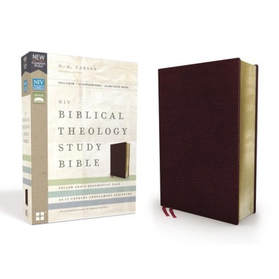
When we study the Bible we need to approach it with purpose, expecting it to let us know more about God and His plan for us. We need to approach our personal study of the Bible prayerfully.
Psalm 119:33 (NLT)33 Teach me your decrees, O LORD; I will keep them to the end.
To do so expectantly means we believe that the Lord is going to speak specifically to us
Psalm 25:4 (NLT) Show me the right path, O LORD; point out the road for me to follow.
Sermons, Sunday school lessons, and quiet times on our own are all things to be anticipated. God uses these to build us up, strengthen us, or offer us comfort—He certainly makes listening to Him worthwhile. And obedience is the only proper response to this kind of personal attention.
Approaching the reading of Scripture prayerfully prepares our hearts to listen well and ushers in an attitude of purpose and expectancy.
If you want to experience God working in your life, come to Scripture with a prayerful, expectant, purpose-filled attitude. The mourner will be comforted. The weary will gain strength. Those convicted of their sin will repent and know peace. All will sense joy.
When we study the Bible we need to approach it with purpose, expecting it to let us know more about God and His plan for us. We need to approach our personal study of the Bible prayerfully.
There are three step to reading and understanding it.
- Step 1: Observation—What does the passage say?
- Step 2: Interpretation—What does the passage mean?
- Step 3: Application—What am I going to do about what the passage says and means?

Observation is the first and most important step in the process. As you read the Bible text, you need to look carefully at what is said, and how it is said. Look for:
● Terms, not words. Words can have many meanings, but terms are words used in a specific way in a specific context. For instance, the word trunk could apply to a tree, a car, or a storage box. However, when you read, “That tree has a very large trunk,” you know exactly what the word means, which makes it a term.
Let’s look at the word dove. We know that a dove is a bird.
Genesis 8:8 (NLT)8 He also released a dove to see if the water had receded and it could find dry ground.
Matthew 3:16 (NLT)16 After his baptism, as Jesus came up out of the water, the heavens were opened and he saw the Spirit of God descending like a dove and settling on him.
We see in this verse that the dove is a symbol of the Holy Spirit or that the Holy Spirit manifested Himself in the form of a dove. That doesn’t mean that everywhere we see dove it is the Holy Spirit look at the context in which the word was used.
● Structure. If you look at your Bible, you will see that the text has units called paragraphs . A paragraph is a complete unit of thought. You can discover the content of the author’s message by noting and understanding each paragraph unit.
Isaiah 53:4-6 (HCSB)4 Yet He Himself bore our sicknesses, and He carried our pains; but we in turn regarded Him stricken, struck down by God, and afflicted.5 But He was pierced because of our transgressions, crushed because of our iniquities; punishment for our peace was on Him, and we are healed by His wounds.6 We all went astray like sheep; we all have turned to our own way; and the LORD has punished Him for the iniquity of us all.
The structure and context here seems to indicate that the writer, under the inspiration of the Holy Spirit is talking about illness of the soul or spirit rather than the body.
3 John (NLT)1 This letter is from John, the elder.[a]I am writing to Gaius, my dear friend, whom I love in the truth.2 Dear friend, I hope all is well with you and that you are as healthy in body as you are strong in spirit. 3 Some of the traveling teachers[b] recently returned and made me very happy by telling me about your faithfulness and that you are living according to the truth. 4 I could have no greater joy than to hear that my children are following the truth.
This is a greeting from one friend to another, not a promise from God
● Emphasis. The amount of space or the number of chapters or verses devoted to a specific topic will reveal the importance of that topic (for example, note the emphasis of Romans 9 which is the importance of Israel to reveal God’s person and plan to the world.
Psalms 119 the longest chapter in the Bible it’s all about the Law or Word of God.
● Repetition. This is another way an author demonstrates that something is important. One reading of 1 Corinthians 13, where the author uses the word “love” nine times in only 13 verses, communicates to us that love is the focal point of these 13 verses.
● Relationships between ideas. Pay close attention, for example, to certain relationships that appear in the text:
—Cause-and-effect:
Matthew 25:21 (HCSB)21 “His master said to him, ‘Well done, good and faithful slave! You were faithful over a few things; I will put you in charge of many things. Share your master’s joy!’
The effect of the servant being faithful is his being rewarded.
Luke 6:31 (HCSB) Just as you want others to do for you, do the same for them.
Colossians 3:23-25 (HCSB)23 Whatever you do, do it enthusiastically, as something done for the Lord and not for men,24 knowing that you will receive the reward of an inheritance from the Lord. You serve the Lord Christ.25 For the wrongdoer will be paid back for whatever wrong he has done, and there is no favoritism.
--Ifs and thens:
2 Chronicles 7:14 (NKJV) if My people who are called by My name will humble themselves, and pray and seek My face, and turn from their wicked ways, then I will hear from heaven, and will forgive their sin and heal their land.
1 John 1:9 (NKJV) If we confess our sins, He is faithful and just to forgive us our sins and to cleanse us from all unrighteousness.
God will forgive us and cleanse us if we confess.
Deuteronomy 7:12 (NLT)12 “If you listen to these regulations and faithfully obey them, the LORD your God will keep his covenant of unfailing love with you, as he promised with an oath to your ancestors.
Deuteronomy 11:13-15 (NLT)13 “If you carefully obey all the commands I am giving you today, and if you love the LORD your God and serve him with all your heart and soul,14 then he will send the rains in their proper seasons—the early and late rains—so you can bring in your harvests of grain, new wine, and olive oil.15 He will give you lush pastureland for your livestock, and you yourselves will have all you want to eat.
—Questions and answers:
Psalm 24:8 (NLT)8 Who is the King of glory? The LORD, strong and mighty; the LORD, invincible in battle.
Romans 8:35-39 (HCSB)35 Who can separate us from the love of Christ? Can affliction or anguish or persecution or famine or nakedness or danger or sword?36 As it is written: Because of You we are being put to death all day long; we are counted as sheep to be slaughtered.37 No, in all these things we are more than victorious through Him who loved us.38 For I am persuaded that not even death or life, angels or rulers, things present or things to come, ⌊hostile⌋ powers,39 height or depth, or any other created thing will have the power to separate us from the love of God that is in Christ Jesus our Lord!
● Comparisons and contrasts.
Matthew 5:21-26 (HCSB)21 “You have heard that it was said to our ancestors, Do not murder, and whoever murders will be subject to judgment.22 But I tell you, everyone who is angry with his brother will be subject to judgment. And whoever says to his brother, ‘Fool!’ will be subject to the Sanhedrin. But whoever says, ‘You moron!’ will be subject to hellfire23 So if you are offering your gift on the altar, and there you remember that your brother has something against you,24 leave your gift there in front of the altar. First go and be reconciled with your brother, and then come and offer your gift.25 Reach a settlement quickly with your adversary while you’re on the way with him, or your adversary will hand you over to the judge, the judge to the officer, and you will be thrown into prison.26 I assure you: You will never get out of there until you have paid the last penny!
Matthew 5:43-48 (HCSB)43 “You have heard that it was said, Love your neighbor and hate your enemy.44 But I tell you, love your enemies and pray for those who persecute you,45 so that you may be sons of your Father in heaven. For He causes His sun to rise on the evil and the good, and sends rain on the righteous and the unrighteous.46 For if you love those who love you, what reward will you have? Don’t even the tax collectors do the same?47 And if you greet only your brothers, what are you doing out of the ordinary? Don’t even the Gentiles do the same?48 Be perfect, therefore, as your heavenly Father is perfect.
Much of Jesus’ Sermon on the Mount (Matthew 5-7) is comparison and contrasts. In His sermon He’s contrasting what the teachers of law are teaching with the Kingdom of God and what is the spirit rather than the letter of the law. This sermon tells us what it is to really be a Christian.
● Literary form. The Bible is literature, and the three main types of literature in the Bible are discourse (the epistles), prose (Old Testament history), and poetry (the Psalms). Considering the type of literature makes a great deal of difference when you read and interpret the Scriptures.
● Atmosphere. The author had a particular reason or burden for writing each passage, chapter, and book. Be sure you notice the mood or tone or urgency of the writing.
We might be able, on our own, to figure out the atmosphere. Here you can really look for help from biblical scholars. In some of your bibles there is a section in the front of the book that will give you the reason the author wrote the book. If you know the atmosphere it will help you as you study it because you’ll know the purpose that God give the author.
Ask The Who What Where When questions.
Who are the people in this passage? What is happening in this passage? Where is this story taking place? When in time (of day, of the year, in history) is it?
Asking these four questions can help you notice terms and identify atmosphere. The answers will also enable you to use your imagination to recreate the scene you’re reading about.
As you answer the Who What Where When questions and imagine the event, you’ll probably come up with some questions of your own.
Asking those additional questions for understanding will help to build a bridge between observation (the first step) and interpretation (the second step) of the Bible study process. I'll talk about interpretation in the next post.


 RSS Feed
RSS Feed